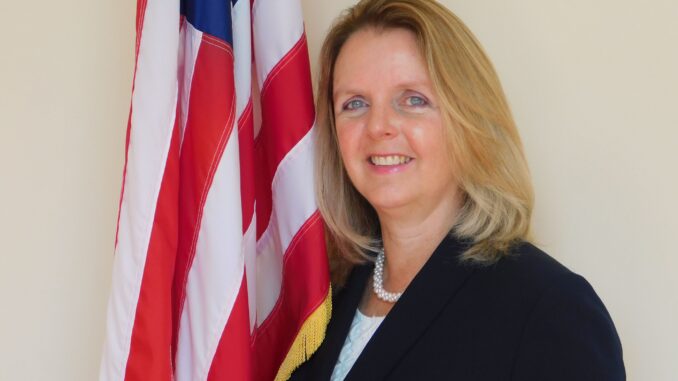
By Debra Mulé
Nassau County has long relied upon federal funding to finance key services that our constituents rely upon. However, as President Trump’s wide-ranging assault upon essential federal institutions reaches a crescendo and his megabill takes effect, major cuts are all but certainly on the horizon.
It’s time for Nassau County Executive Bruce A. Blakeman, the office of Nassau County’s Comptroller, and each of us to take notice and brace for impact in the fiscal year 2026 budget that will soon be prepared.
During our July 14 legislative committee meetings, two items brought this threat into sharper focus. An item before the Legislature’s Finance Committee sought to allocate millions toward offsetting the county’s emergency management operations. As I questioned administration officials, they made it clear that the county relies on these dollars for these essential operations — but said it was unclear how the megabill would impact future funding.
Later, my colleagues on the Rules Committee were presented a budget transfer resolution that delivers $1,714,000 to Nassau’s Women, Infants and Children (WIC) nutrition assistance program. This federal pass-through grant is awarded to the state and then provided to local municipalities such as Nassau County, where those resources support a program feeding more than 5,000 clients at sites in Glen Cove and Hempstead.
Once again, this would normally be a routine vote — an administrative step toward meeting a basic governmental function that ensures our most vulnerable constituents have access to healthy food. However, after the Trump administration’s megabill gutted $300 billion in funding for the Supplemental Nutrition Assistance Program (SNAP), impacting approximately 150,000 at-risk Long Islanders, we can treat nothing involving the federal government as routine.
Those two items represent just the proverbial tip of the iceberg. Nassau County relies upon federal resources to support counterterrorism initiatives and enhance funding for our local police departments; to repair and upgrade vital infrastructure like our bridges, roads and sewer infrastructure; to preserve public health through federal initiatives, such as the Ryan White HIV/AIDS Program, and much more.
This all comes before we consider the impact of even larger structural changes being pursued by the Trump administration, including more than $1 trillion in cuts to Medicaid, the shuttering of the Department of Education, and a massive 44% cut to funding for the Department of Housing and Urban Development’s (HUD) programs to provide affordable housing and combat homelessness.
The high likelihood of federal funding being slashed makes it imperative for County Executive Bruce Blakeman to work proactively toward preventing draconian future cuts to local services.
As Blakeman and his administration prepare the Fiscal Year 2026 budget, they must first identify every federal revenue source and closely monitor them for potential cuts – as we cannot afford to lose funding for a vital program due to an oversight. Accordingly, I urge Nassau County Comptroller Elaine Phillips to conduct her own independent review and make this looming fiscal risk a focal point of her presentation during the Legislature’s upcoming budget hearings.
Once the county has established a comprehensive understanding of the megabill’s impact, a public briefing at an upcoming Legislature meeting is essential. Publicly airing the facts in an organized, transparent manner will equip us as fiduciaries of the county to make fully informed decisions about our future and ensure that the taxpayers we serve are entirely aware of what is on the table.
Now is the time for the Blakeman administration, the Legislature and the Comptroller’s office to roll up their sleeves and ascertain the facts, whatever they may be. Doing so is the only way to position the County to preserve essential services that our constituents rely upon — and help us to navigate this unprecedented budget season to the best of our ability.
Debra Mulé (D-Freeport) is the Nassau County Legislature’s Alternate Deputy Minority Leader. She was first elected to the Legislature in 2017 and currently represents the Sixth District.

